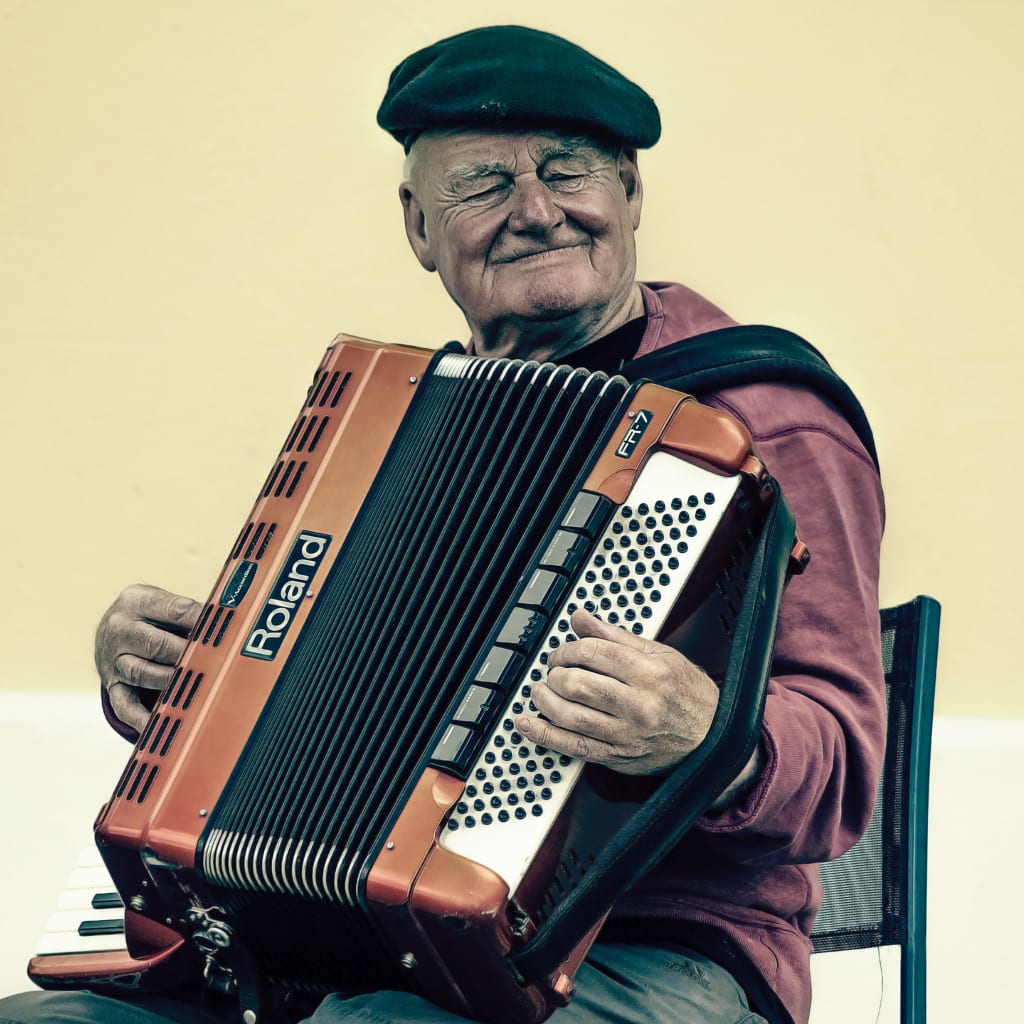The Healing Power of Music
Real life story about Music Therapy and Dementia

I've always been drawn to experiments. If someone shared research that piqued my interest, I felt compelled to put it to the test myself.
My grandmother has dementia, a condition whose implications are all too familiar to most of us.
That is the story about one particular moment with her.
One day, my journey led me to the discovery of a fascinating book on music therapy. This book delved into the profound ways in which individuals with dementia respond to music, and how it can help them create what are often referred to as "memory islands." These islands consist of fleeting recollections of past events, particularly those frequently repeated.
I couldn't help but recall YouTube videos showcasing the remarkable stories of individuals with dementia, like the ballet dancer who, upon hearing a familiar tune, would gracefully mimic her ballet routine, even from the confines of her wheelchair.
On a particular day, I found myself at my parents' home, where I could spend some quality time with my grandmother. Despite being over 80 years old, her physical health remained robust. Unfortunately, her cognitive faculties were gradually fading. Memories of her life before dementia were etched in my mind: she was devoutly religious, dedicating time each day to her prayers. She began her mornings with gentle stretches before setting out on a walk to the nearest church, as she didn't have a driver's license. Her routine included significant amounts of walking and tending to her garden, which, in hindsight, seemed to have bestowed her with robust physical health.
We found ourselves alone in the living room, a setting I cherished for our one-on-one moments. Her energy was different in such moments. While her memory was fragmented, she remained highly attuned to the energies around her. I made it a point to be both gentle and calm in her presence.
Recalling the book from the library in Berlin, where I resided at that time, I seized the opportunity to put its wisdom to the test. Opening YouTube on my computer, I searched for a religious song I had learned from my grandmother in my early years. I stumbled upon a hymn devoted to Mother Mary, pressed play, and watched as a transformation overcame her.
A radiant smile graced her lips, and soon, she began to sing. Her voice filled the room, echoing the sacred songs of her churchgoing days. She knew every prayer, every lyric, by heart. I joined in, singing the lyrics, and within moments, she harmonized with me, seamlessly weaving through the verses. Our spirits soared, and I glimpsed a newfound vitality in her eyes.
The next song I queued up was met with an immediate response from her. When the music ceased, she recounted a surprising tale: "You know, when I was employed at Trimo (the company she was working at), all my colleagues were communists. The bosses even pressured us to sign up and join the party. But I resisted. I was an excellent secretary, and my boss held me in high regard. I recall brewing countless cups of coffee during those days." I was taken aback by the accuracy of her recollection; it was a story I knew well. Swiftly, I asked her, "Who were these communists?" She responded with conviction, "People who did not believe in God, people who looked down upon us."
Our conversation continued, and she shared glimpses of her challenging life, a narrative she frequently revisited. As time passed, she once again retreated into the recesses of her memory. But that moment, that precious memory island, was nothing short of extraordinary. She exuded confidence and happiness, basking in the memories she had temporarily reclaimed.
This experience underscored the undeniable therapeutic power of music, especially for individuals grappling with mental illnesses like dementia. Music has the remarkable capacity to soothe the mind and provide it with space to breathe and reconnect.
In the realm of dementia care, where memories often fade like distant stars, music stands as a luminous beacon of hope. Research supports its ability to stimulate brain activity, elevate mood, and enhance cognitive function. It bridges the chasm between the past and the present, offering glimpses of cherished memories.
As we confront the challenges posed by dementia in our aging population, let us remember that within the notes and melodies of music lies a profound healing force. While it may not cure the ailment, it can certainly improve the quality of life for those living with it. So, if you find yourself caring for someone with dementia, consider the magic of music – you may just unlock a memory island of your own, and in that moment, rediscover the person you once knew and loved.





Comments
There are no comments for this story
Be the first to respond and start the conversation.